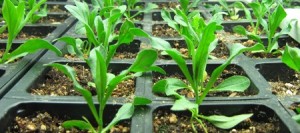Plant biology is the study of plants, which includes, among other things, how plants evolved on earth, their structure, growth and development, and interaction with the environment. In addition, plants grow continually throughout life and have no maximum size or characteristic form in the adult, as do animals.
Plants are essential to the balance of nature and in people’s lives. Green plants are possessing chlorophyll, prepare their own food and give off oxygen in the process is called as photosynthesis, in which water and carbon dioxide are combined with the energy of light. Plants provide oxygen, food, fuel and fiber and takes carbon dioxide from human beings. Plants are the ultimate source of food for living things in this world. Scientists study about plants to improve and secure the food supply for an increasing population, identify new sources of bioactive compounds and medicines, improve fiber production and identify sources of biofuels and bio renewable resources. Plants produce a wide range of essential oils and these are very attractive to humans. We use plants to make our homes and bodies smell better and our food taste better. Most of the people think about decorating. We use plants in landscaping our towns, businesses, and homes. We give flowers as gifts and put corsages on formals and tuxedos and used them in ceremonies such as baptisms, weddings, and funerals. From birth to death, we decorate our lives with plants. Nursery and Floristry is the third-largest business in Connecticut! Most people don’t know that. Finally, we concluded that people should make a habit of planting a number of trees and help to conserve them.

